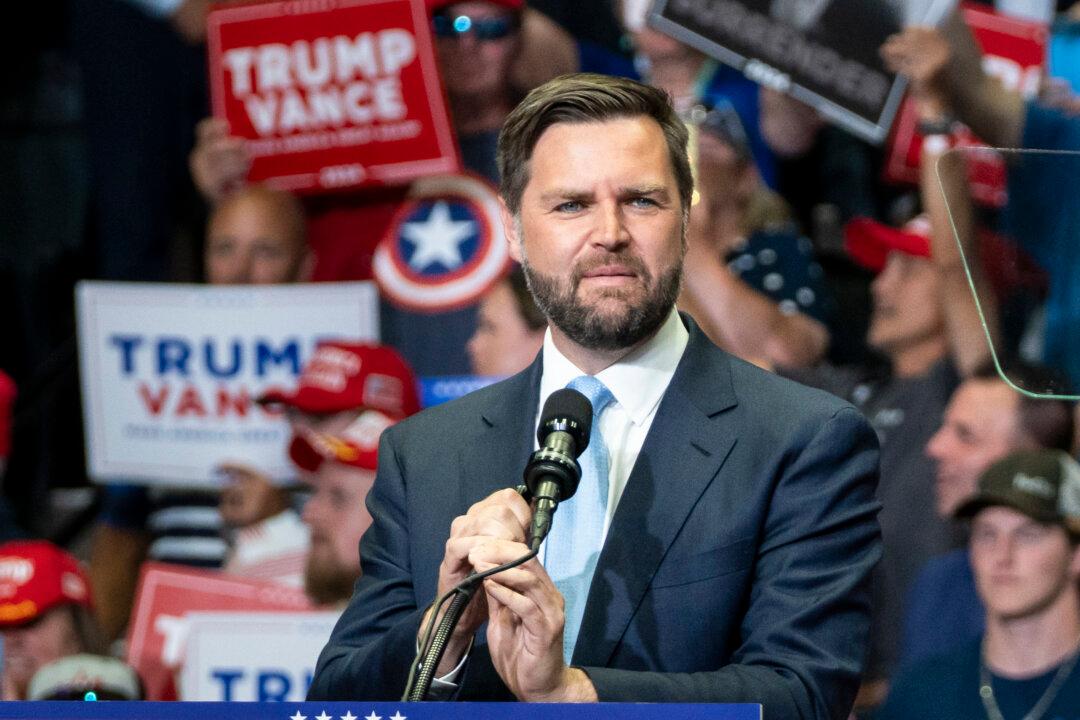Vice presidential candidate Sen. JD Vance (R-Ohio) on Thursday outlined what he believed would be former President Donald Trump’s plan to end the war in Ukraine if he wins the November election.
During an interview on the “Shawn Ryan Show” podcast, Vance suggested that Trump’s plan might involve creating a heavily fortified demilitarized zone in Ukrainian territory to prevent future Russian invasions.





